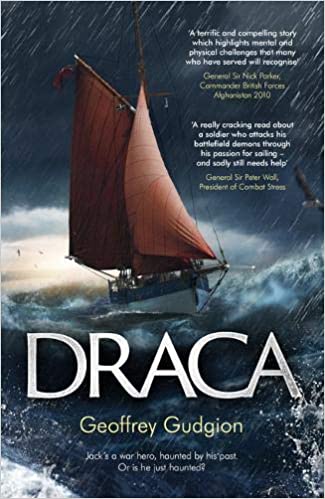 I’m thrilled to welcome Dave back to my blog for a third time. Some of you will remember his guest storyteller appearance back in June of last year, when he teased us with an extract from his speculative “what if” novel, The Range, which he went on to publish in November. For those of you who missed the publication day post, here’s the blurb.
I’m thrilled to welcome Dave back to my blog for a third time. Some of you will remember his guest storyteller appearance back in June of last year, when he teased us with an extract from his speculative “what if” novel, The Range, which he went on to publish in November. For those of you who missed the publication day post, here’s the blurb.
News breaks of a deadly virus in Asia but, despite fatalities, few people take it seriously. Sheltered within the university bubble, Samantha and Louise are convinced the UK is invulnerable to this virus, until gruesome events unfold around the world and the death toll rises from hundreds to millions. By the time the virus reaches England and students on campus start falling sick, Samantha has to weigh up the risks of travelling home to London. She decides to sit tight with Louise and wait for everything to blow over. But the situation further deteriorates in ways the two friends couldn’t have envisaged. Their student flat is no fortress and there’s only one place they’ll be safe: The Range.
I found the novel both gripping and thought-provoking. Dave has a fantastic imagination and I wish him every success with his intended “Bloodwalker Legacy” trilogy, of which The Range is Book 1.
And now a few questions for the great man himself…
SP: When and why did you start writing novels, and is The Range your first or the first one that you decided to publish?
DF: Writing novels stems from the ever growing word count of short stories, which evolved into novellas, though it took many years of learning the craft of writing to build up a toolbox of skills to enable me to put together a full novel. The Range is the first novel I decided to publish, and I consider previous attempts as a learning curve.
SP: Why did you decide to self-publish straight off, rather than test out the traditional route?
DF: Like other writers, I’ve watched the publishing world change, and the advent of the internet and ebooks has shifted the control aspect of publishing from traditional publishing houses to the writers themselves. I thought long and hard about which route to take, and the appeal of managing my writing via self-publishing was too hard to resist as it puts me in control.
SP: During my reading of The Range, I loved the characters, settings, plot and dialogue, but on the editorial and proofreading front it still needed attention, now sorted in the newly uploaded version [Please note, fellow bloggers, the fact that Dave and I are still friends is a testimony to his good nature and willingness to take constructive criticism]. Over to you, Dave, for your comment on the editorial side of things.
DF: In my opinion a good writer will take well-reasoned constructive criticism as a positive, and not view it as an attack on their ability. I believed I had edited out all the errors and typos so it was annoying to have someone point out those I had missed. Yet at the same time I welcomed them because it helped improve the reading experience for the next reader. My advice to anyone planning to self-publish is to request feedback from a variety of beta readers (if you can’t afford a professional editor) because someone will always spot a hidden error others have missed. A big thank you to Sarah for being that someone, and as infuriating as it is to have those errors pointed out, I am indeed very grateful.
SP: Your main protagonist in The Range is Samantha, from whose first-person point of view you write. As a female reader, I found your portrayal of someone of my gender extremely authentic and believable. Why did you choose this viewpoint and how difficult did you find it getting inside the head of someone of the opposite sex?
DF: An early draft of The Range was from the view-point of a video camera, operated by Samantha, but it didn’t work as I couldn’t capture the emotions and thoughts of the central character. I chose a female character because having read many novels of a similar genre I found the lead was male, more often than not, and though I wanted to explore a different angle and see how a female would cope in such difficult times, it didn’t require a lot of decision-making as it came naturally to write from a female perspective. It wasn’t too difficult to write from a female point of view, though I did seek advice at times, especially when it came to certain phrases and mannerisms.
SP: Who is your favourite character in the novel and why?
DF: That’s a tough one! I want to say Pedley because he’s a creepy guy and I enjoyed spending time creating him. Yet I’m drawn to Vic more so because he’s the underdog, and despite his odd nature, he has a good heart and wants to be needed.
SP: Which did you enjoy writing about the most: the goodies or baddies?
DF: Whilst spending time in Samantha’s head has been a great experience, and something of a learning curve too, I relished writing scenes with the bad guys because it was a chance to explore the darker side of human nature.
SP: You’ve chosen to set the main part of the novel’s action in the University City of Cambridge, UK, a place with which you’re closely familiar. Did you ever consider setting it in a fictional city, or did you think it important to choose a real place so as to give the reader a frame of reference amidst all the apocalyptic-style chaos that ensues?
DF: It wasn’t necessary to give readers a sense of reference since many readers may not be familiar with Cambridge or other locations. I chose real life places to ground myself in those surroundings in the hope it would feel more real to the reader. The “write what you know” aspect of storytelling doesn’t always work since I don’t know any Bloodwalkers, however, using real places enabled me to visit them to get a better sense of the “what-if” factor and hopefully with realism in place it would make the fantastical elements more believable, and frightening.
SP: The novel opens up all manner of “what-if” questions, some of which are complex. Are you a writer who researches and does a plot outline in advance, or do you research as you write and let the characters decide what happens?
DF: I prefer a blend of the two. Early drafts were written from the seat of my pants, and I learned that it didn’t work well due to losing track of where I wanted characters and plot to go. I adopted a system of knowing where I wanted the story or each chapter/scene to start, Point A, and knowing where I wanted them to end up, Point C, and enjoying the ride through Point B. I did considerable research into many aspects of the story, some I never used, but it helped build my confidence with the characters and events.
SP: Without holding you to an exact date, when are you intending to publish The Holt, your sequel to The Range?
DF: I’m about half way through The Holt and plan to finish it by May 2015. Allowing time for beta reader feedback and editing, I estimate The Holt will be published by the end of summer, possibly early autumn 2015. Day jobs are indeed a distraction when it comes to spending time in Imaginationland.
SP: Who and what in your life has most inspired or encouraged you to write?
DF: From an early age it was my dad who inspired me to write. He encouraged me to read more than the books given out at school. After reading Kes or Buddy from English class, I’d hide under the covers at night and read Stephen King. He has been a constant source of help and guidance over the years. Equally important are my close friends who cheered me on when I felt my heart wasn’t in it at times.
#
Thank you, Dave. I’ve thoroughly enjoyed the interview and hope you have, too!
 The Range is available for purchase in both kindle and paperback format from Amazon.co.uk and Amazon.com.
The Range is available for purchase in both kindle and paperback format from Amazon.co.uk and Amazon.com.
Dave blogs at www.davefarmer.co.uk









